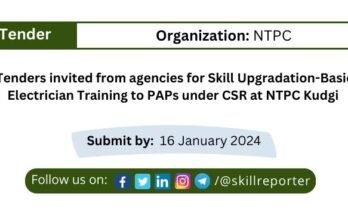Bengaluru : The/Nudge announced its plans to build organizational capacity to reach other states outside of Karnataka and expand their livelihood program.
The expansion in India is supported by a USD 250,000 grant from The Rockefeller Foundation to The/Nudge Project by End Poverty and will be used for capacity building across admissions, program delivery, product research and tech-driven data management systems.
New York-based The Rockefeller Foundation is one of the largest foundations in the United States, and one of the oldest names in global development philanthropy.
Speaking about the support, Ashvin Dayal, Associate Vice-President and Managing Director, Asia, Rockefeller Foundation said, “With this grant, we are confident End Poverty through The/Nudge Project can make a tangible impact that shapes a better and brighter future for many deserving Indian youth.”
Since 2015, The/Nudge’s Gurukuls have been helping underprivileged youth through rigorous fully-residential program aimed at job and life-readiness. Over the next year, the organization plans to expand to more states to bring deserving students and train them at the existing Gurukuls.
The aim is to scale to more that 5000 students annually and provide gainful employment. The nonprofit also intends to launch 2 more livelihoods in the coming year and implement data systems and processes that provide robust, comprehensive and consistent learning tools for students and trainers.
Atul Satija, Founder of The/Nudge said, “We are looking forward to expanding our reach to other states, providing more livelihood choices and empowering more youth across the country in the coming months.”
The/Nudge’s Gurukul students are offered specializations across 4 livelihoods at present (driving, beauty, plumbing and data entry), with placements at the end of the program. The organization has achieved 100% job placements for all its graduates to date. While 60% of students had been unemployed at the time of enrolling into the program, the ones previously employed have seen an average increase of almost 40% in wages.
Note: News shared for public awareness with reference from the information provided at online news portals.


